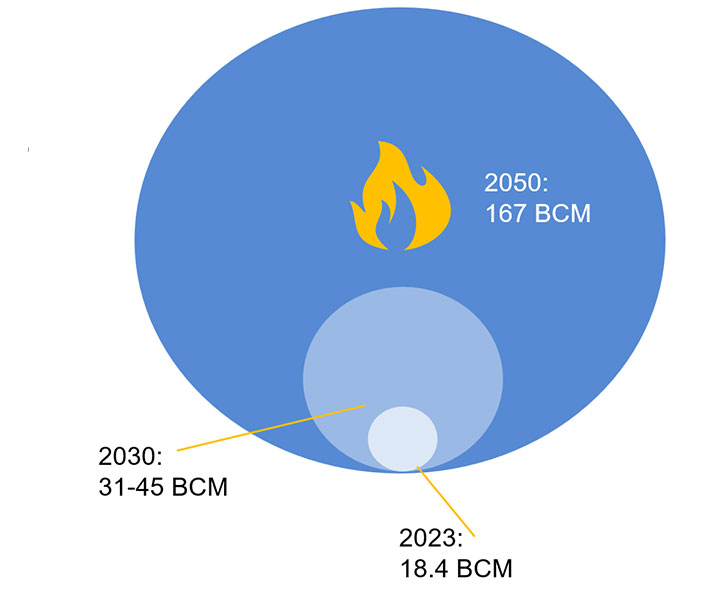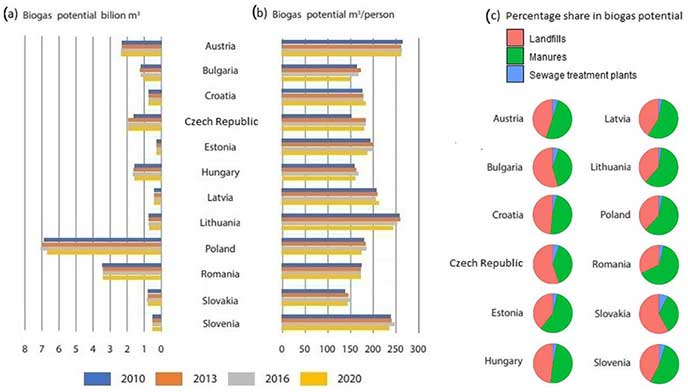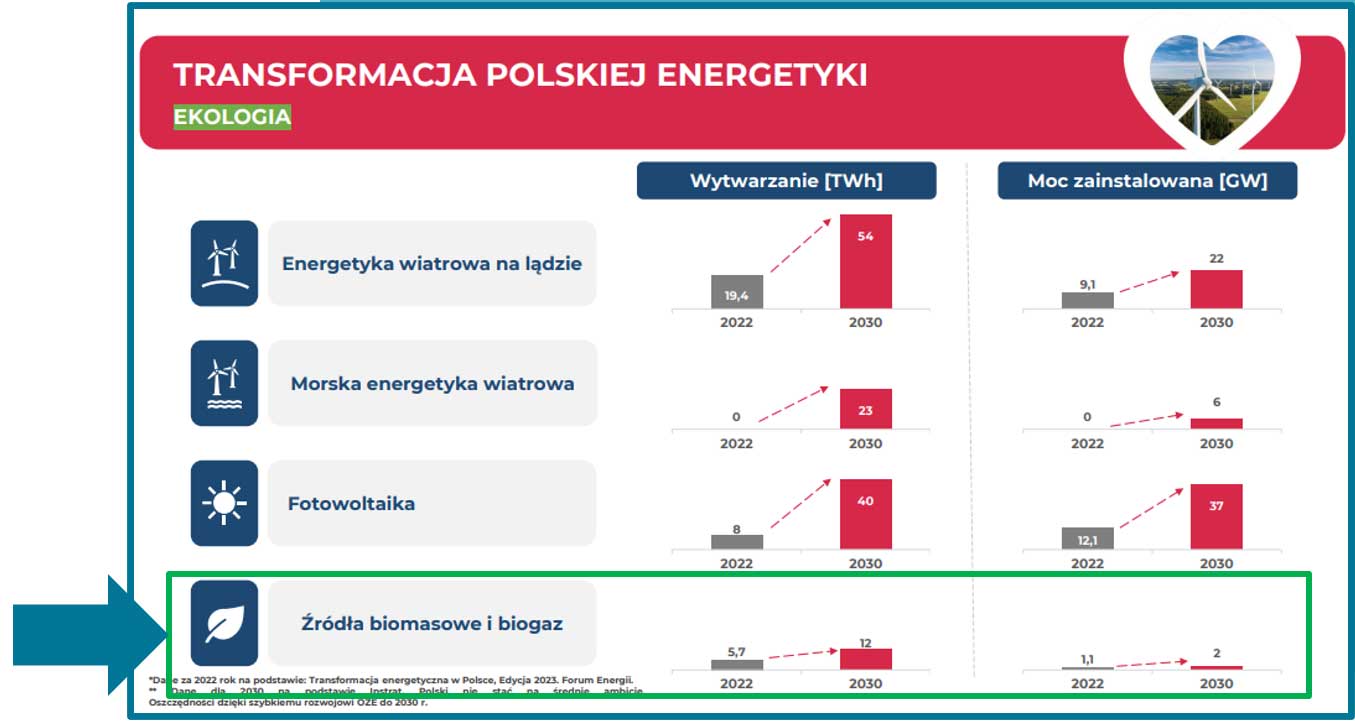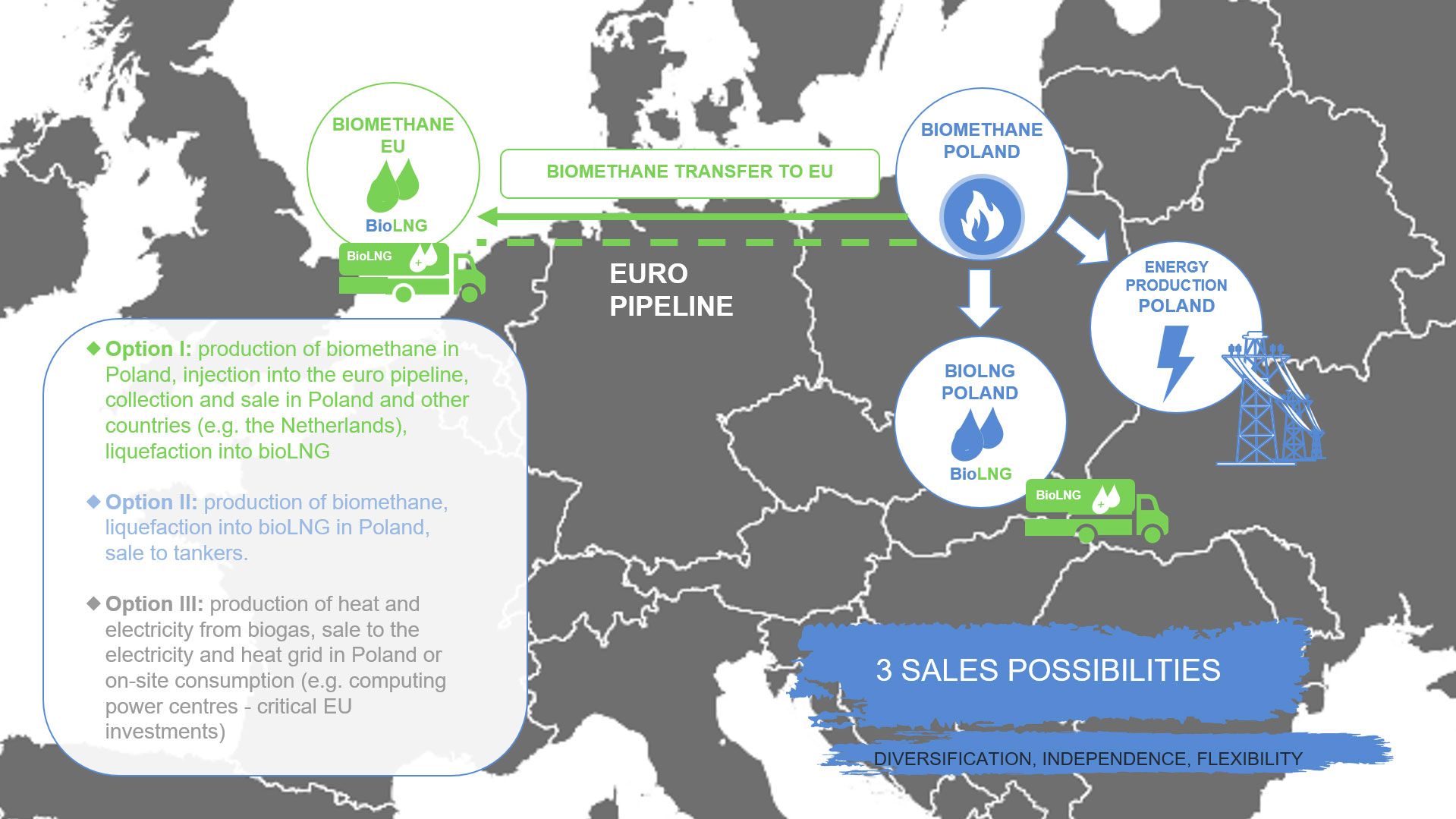Biogas market in Poland,
in EU and potential for growth
Biogas is an excellent source of gas allowing independence from foreign imports.
Biomethane does not differ in quality from imported gas or LNG, so it can be injected into the existing EU gas pipeline network.
Despite the large agri-food production and the significant amount of municipal waste,
Poland has only 5 biogas plants per million inhabitants.
For comparison, Germany has as many as 105 of them.
The growth potential for biogas and biomethane production in the EU by 2050 is very high.
According to EBA (European Biogas Association), biogas and biomethane production can increase from the current 18.4 bcm to 167* bcm, which will cover about 60% of EU gas demand.
It is worth noting that the new Polish government's energy strategy assumes an increase in the number of biogas plants in Poland by several hundred per cent over the next 6 years.
*EBA, Market state and trends in renewable and low-carbon gases in Europe (data for 22021 r.)

Poland's potential for biogas production compared to other Three Seas Initiative (3SI) countries.
Despite having the highest potential for biogas production in the region, Poland does not use it.


Source: The Role of Biogas Potential in Building the Energy Independence of the Three Seas Initiative Countries; Energies 2023, 16(3), 1366
Received: 10 November 2022 / Revised: 20 January 2023 / Accepted: 24 January 2023 / Published: 28 January 2023
REGULATORY FRAMEWORK
Support for projects with European and national policies.
Renewable Energy Directive (RED III)
The RED III aims to increase the share of renewable energy in the EU's overall energy consumption to 42.5% by 2030,
with a further indicative target of 2.5% per year.
The Directive also introduces specific targets for Member States in the industry, transport, and building (district heating and cooling) sectors.
These provisions promote biomethane and biogas producers.
EU Taxonomy
The decision to label the production of biogas from anaerobic digestion (AD) as a low-carbon activity recognizes its valuable contribution to climate neutrality. Biogas production enables greenhouse gas emissions savings in agriculture and waste management,
as acknowledged by the Methane Strategy released last October.
The regulation also supports the role of biogas and biomethane in providing renewable heat and power and recognises the need to integrate “low-carbon gases”, including biomethane, in existing natural gas grids. This sends a positive signal to investors and operators across the whole energy value chain for further deployment of biogas and biomethane in the coming years.
Polish Biogas Act of 13 July 2023
It introduces a number of facilitations for the implementation of biogas plant projects,
including more efficient issuance of connection conditions and construction permits.
New Polish government's priority strategy for the development of biogas plants
The program of the new government coalition in Poland assumes an increase in the capacity of domestic biogas plants by approximately several hundred % in the next 6 years. However, our calculations are much more optimistic.





